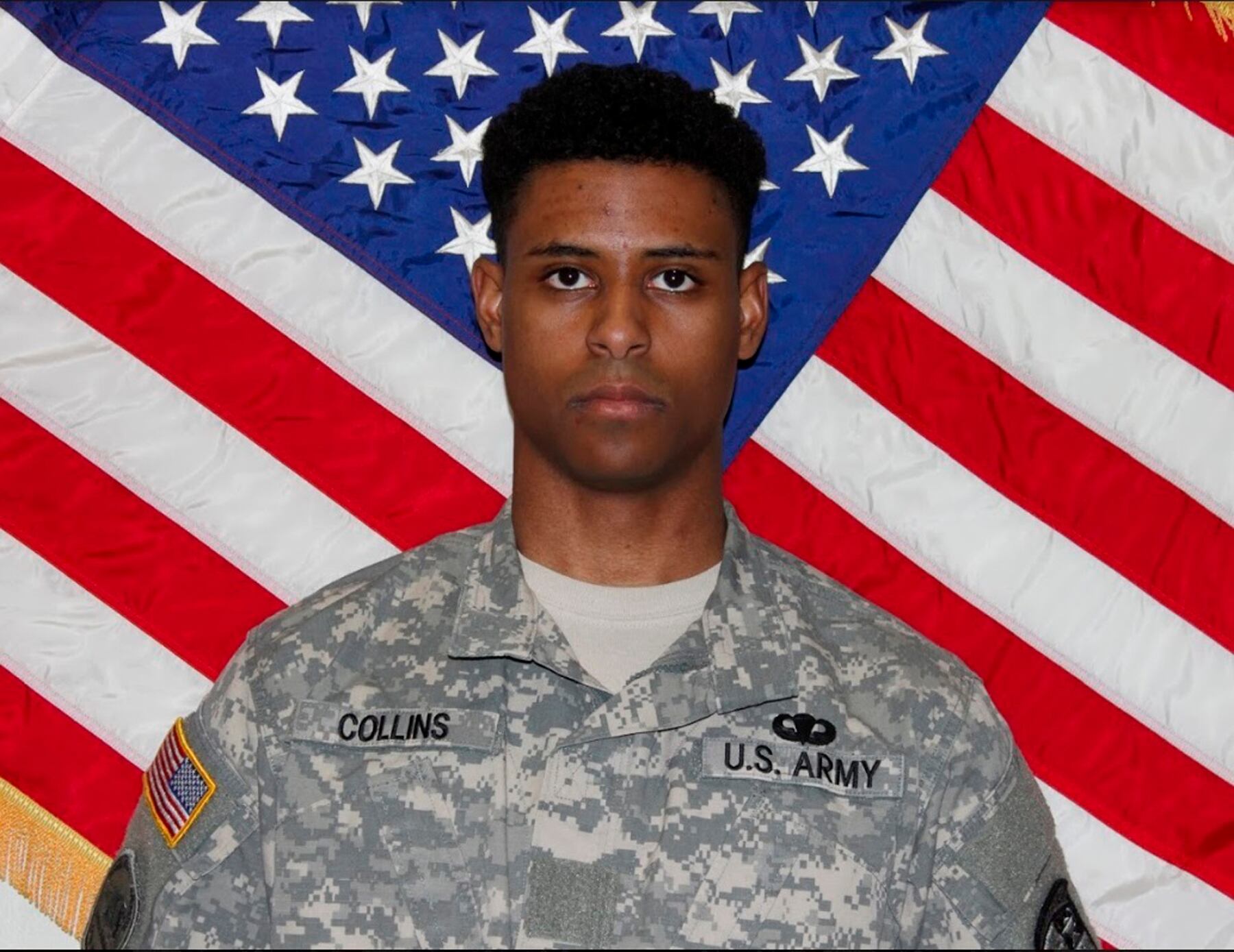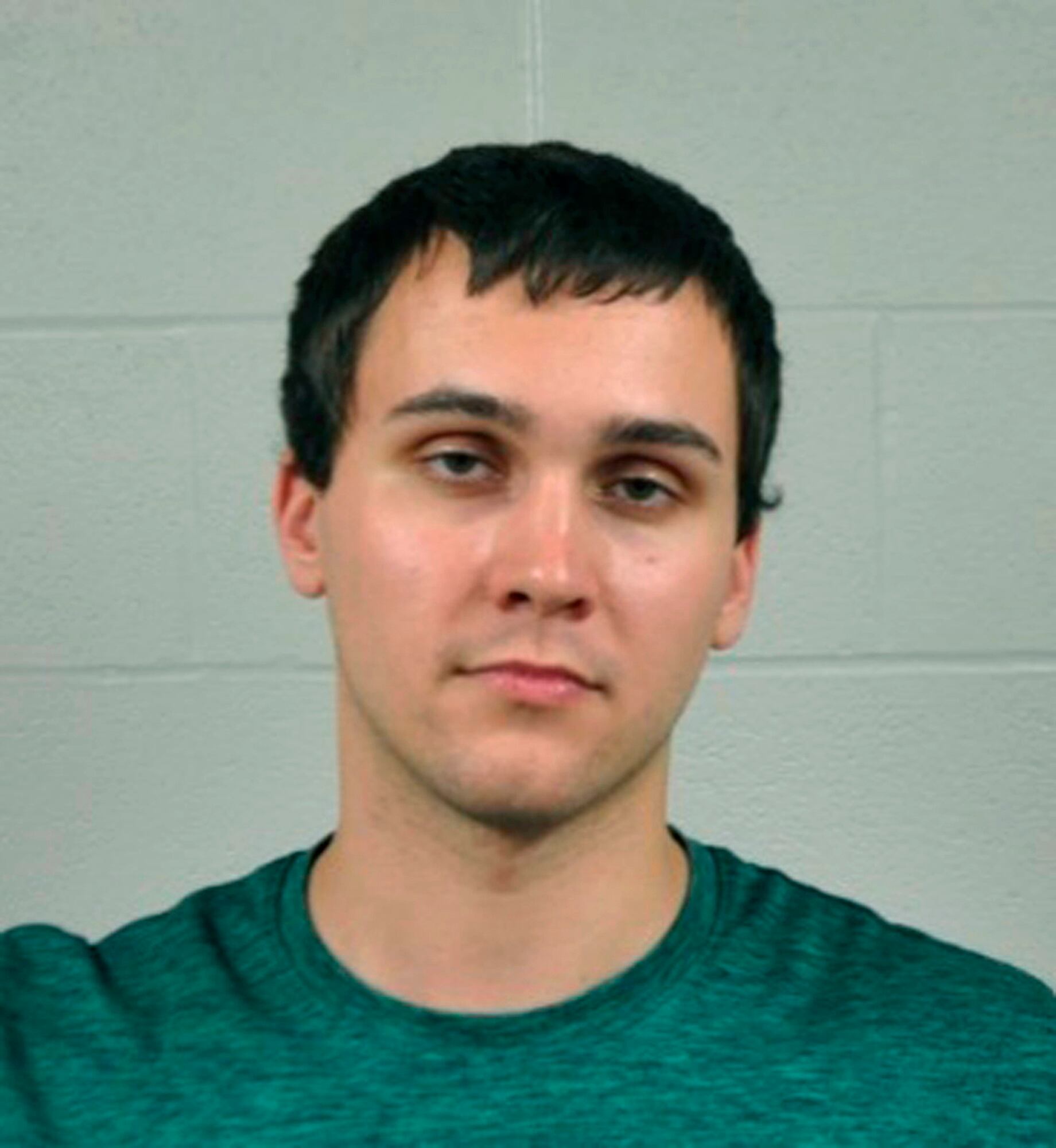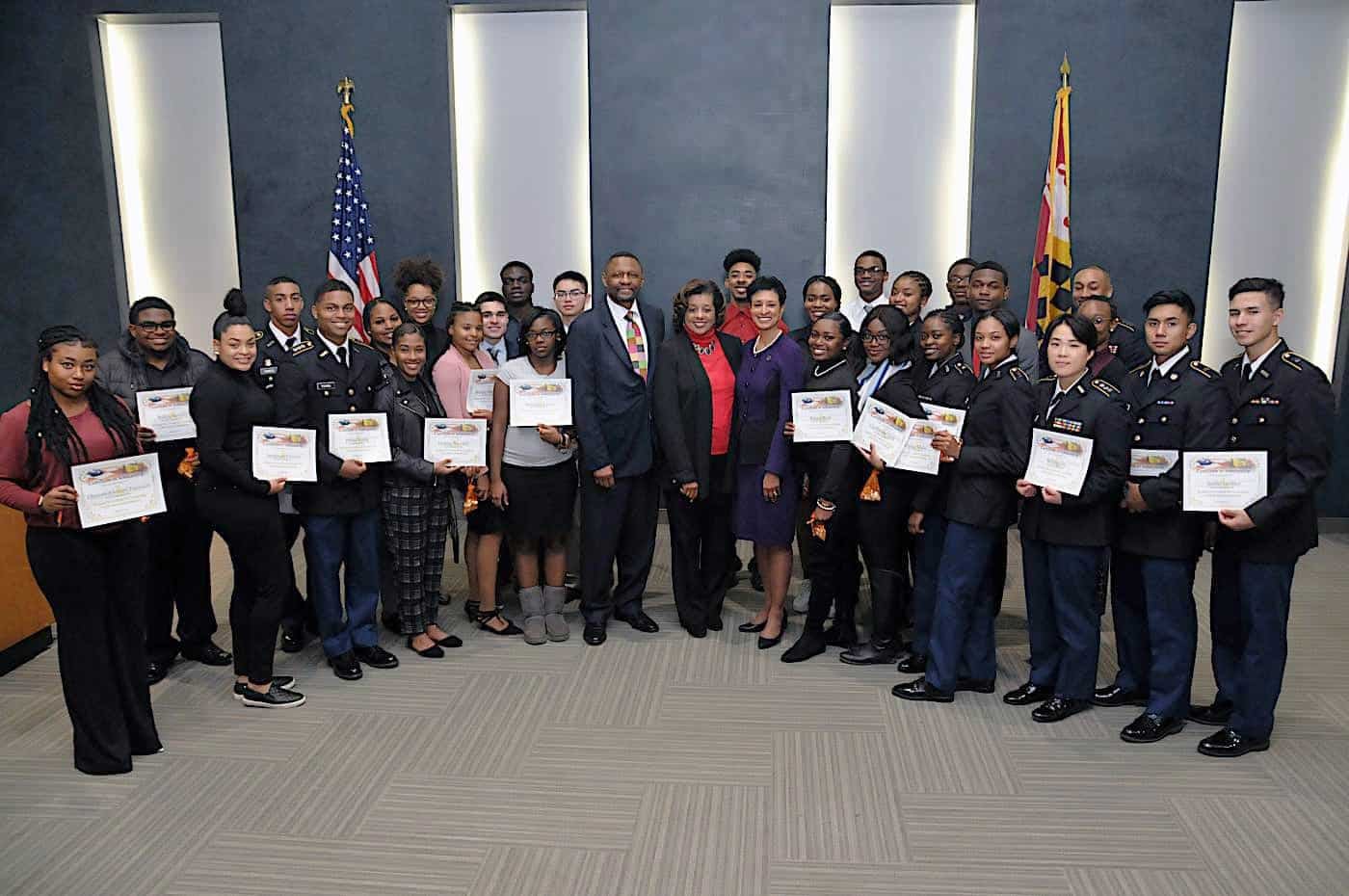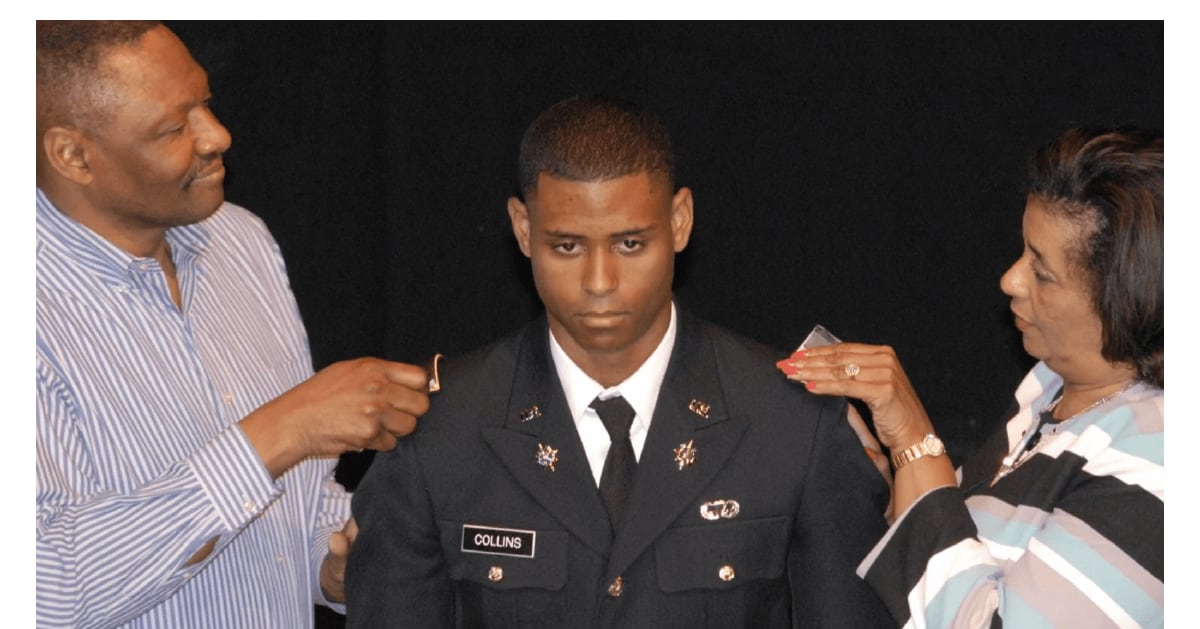Second Lt. Richard Collins III wanted to be a general officer.
The young lieutenant commissioned into the Army on May 18, 2017 — the start of what he told his parents would be a long career in the military. He had already completed basic airborne training and received his branching orders through the Army ROTC program at Bowie State University.
On May 20, just three days before he was set to graduate with a degree in business, Collins, 23, went to the University of Maryland College Park campus to celebrate with friends.
He never came home.
“Step left, step left if you know what’s best for you,” Sean Urbanski told Collins at a UMD bus stop before fatally stabbing him in the chest with no apparent motive.
Collins’ parents and prosecutors believed the killing to be a hate crime.
RELATED

Surveillance footage played in court showed Urbanski walking past a white man and an Asian woman at the bus stop before stopping in front of Collins, the only Black member of the group. A friend of the killer would later testify that both he and Urbanski were members of a white supremacist Facebook group called “Alt-Reich: Nation.”
In his testimony, the friend called the page a “joke site.”
More than a dozen racist memes found on Urbanski’s phone were presented as evidence, but the defense argued that he had been too drunk to premeditate the killing.
“The murderer didn’t know Richard’s background and what he aspired to be, so it didn’t matter all his accomplishments in life and that he was going to serve this country,” Dawn Collins, the lieutenant’s mother, told Military Times. “He was not serving a Black America or a white America. He was serving the United States of America, and this murderer took that away from our country basically because of the color of his skin.”
Hate crime statutes in Maryland at the time required prosecutors to demonstrate that the defendant had stabbed Collins solely because of his race.
Judge Lawrence Hill Jr. ruled that prosecutors had not sufficiently proven race as the sole motivator and acquitted Urbanski of hate crime charges on Dec. 17, 2019, one day before a jury found him guilty of first-degree murder.
Urbanski, now 25, was sentenced to life in prison on Jan. 14 of this year after his sentencing was repeatedly delayed due to the pandemic.

Upset by the high bar set for proving hate crimes in the state of Maryland, parents Rick and Dawn Collins used the 2nd Lt. Richard W. Collins III Foundation, which they had begun in August 2017, to advocate for new legislation.
“We wanted to call attention to the problem of racism in this country through this foundation, and it still is a central part of what we’re doing,” said Rick Collins.
Working with state lawmakers, the foundation saw the passing of House Bill 917 and Senate Bill 606, dubbed “The 2nd Lt. Richard Collins III Law,” in March 2020. Under the new legislation, prosecutors need to show only that a crime was “motivated either in whole or in substantial part by another person’s or group’s race, color, religious beliefs, sexual orientation, gender, disability, or national origin.”
Collins’ parents also worked with members of Congress to secure an amendment to the 2019 National Defense Authorization Act that would provide death benefits to the families of lieutenants who die between receiving their commission and beginning active-duty service.
“We were dismayed to find out that he was not [eligible for death benefits], because once you take that oath, you are part of the United States military,” said Dawn Collins. By the time their son’s murderer was sentenced, the Collinses had received full military death benefits.
But Dawn and Rick Collins are far from finished with their advocacy. The end of the trial was only the beginning of their work through the 2nd Lt. Richard W. Collins III Foundation.

Alongside state lawmakers, they secured a $1 million annual scholarship fund in 2018 for minority ROTC cadets attending a historically Black college or university in Maryland. So far, more than 100 students have benefited from the program.
The 2LT Richard W. Collins III Leadership with Honor Scholarship carries on the Collins family’s long legacy of service in a new way.
Richard Collins III was third-generation military. His grandfather served in Korea and was killed in a hate crime shortly after, according to Dawn Collins, and his father served a 20-year career in the Navy as an air traffic controller, separating at the rank of petty officer first class.
Both Dawn and Rick Collins have also built careers as federal employees.
In addition to scholarships and legislative changes, the foundation has helped to form the BSU-UMD Social Justice Alliance, which promotes social justice initiatives on both campuses.
The alliance will be hosting a symposium on April 23 with students, professors and nationally acclaimed social justice organizations to discuss the issues of racial inequity and various means of combating racism while also bringing healing.
When the pandemic ends, Dawn and Rick Collins plan to go on a speaking circuit to raise awareness about the problem of racism. The two hope their speaking engagements will promote more unification and collaboration between predominantly white institutions and historically Black colleges and universities.
The ultimate goal is to build a national platform for advocacy in their son’s name.
“It is important that people understand the word patriot and what that encompasses. The word patriot does not have a skin color,” said Dawn Collins.
Harm Venhuizen is an editorial intern at Military Times. He is studying political science and philosophy at Calvin University, where he's also in the Army ROTC program.




